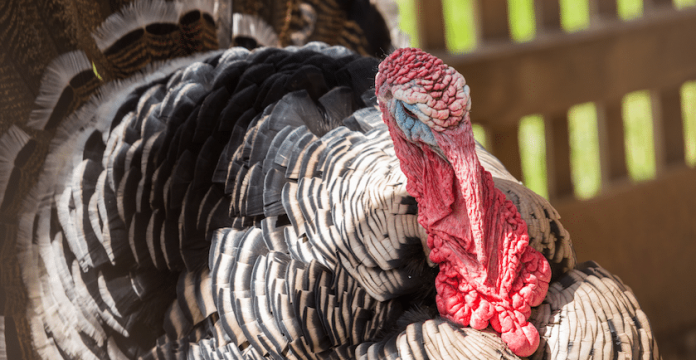
Eating a plant-based diet is the best thing we can do for the environment, and it is also good for our bodies. However, not all of us can handle a vegan diet. And even people like me who eat a vegetarian diet might want a slice of turkey during the holidays. However, if the turkey is not organic and free range grown, don't eat it! "What's the big deal?" you might be thinking. Keep reading to find out why eating free-range, organic turkey is important.
Read more about the health benefits of grass fed beef
Turkeys that are certified organic (the best certification is USDA) are only fed organic feed and have not been treated with antibiotics, according to Local Harvest. Antimicrobial drug resistance is becoming increasingly more common around the world. Every year about 440,000 cases of multi-drug resistant tuberculosis occurs, causing at least 150,000 deaths, according to the World Health Organization (WHO). Extensively drug-resistant tuberculosis has been reported in 64 countries. The WHO cites "inappropriate and irrational use of medicines, including in animal husbandry" as one of the underlying factors that drive antimicrobial resistance.
Free range turkeys, or pastured, mean they are not confined. Conventional turkey farms crowd a bunch of turkeys in a very small area. In fact, 96 percent of turkeys in the U.S. were raised in places that produced at least 30,000 birds a year, according to a USDA report. Confining so many turkeys in tight spaces mean more diseases can break out among the birds, and that is the reason why they are given antibiotics on a regular basis.
Yes, organic, free range turkeys cost more. However, your health is important and priceless. You also have the peace of mind of knowing that free range grown turkeys lead a better life, especially in the wake of reports about employees at turkey facilities abusing turkeys. Let's choose to contribute to the solutions, not to the problems.
Read more about Dutch farmers reducing antibiotic use among livestock




